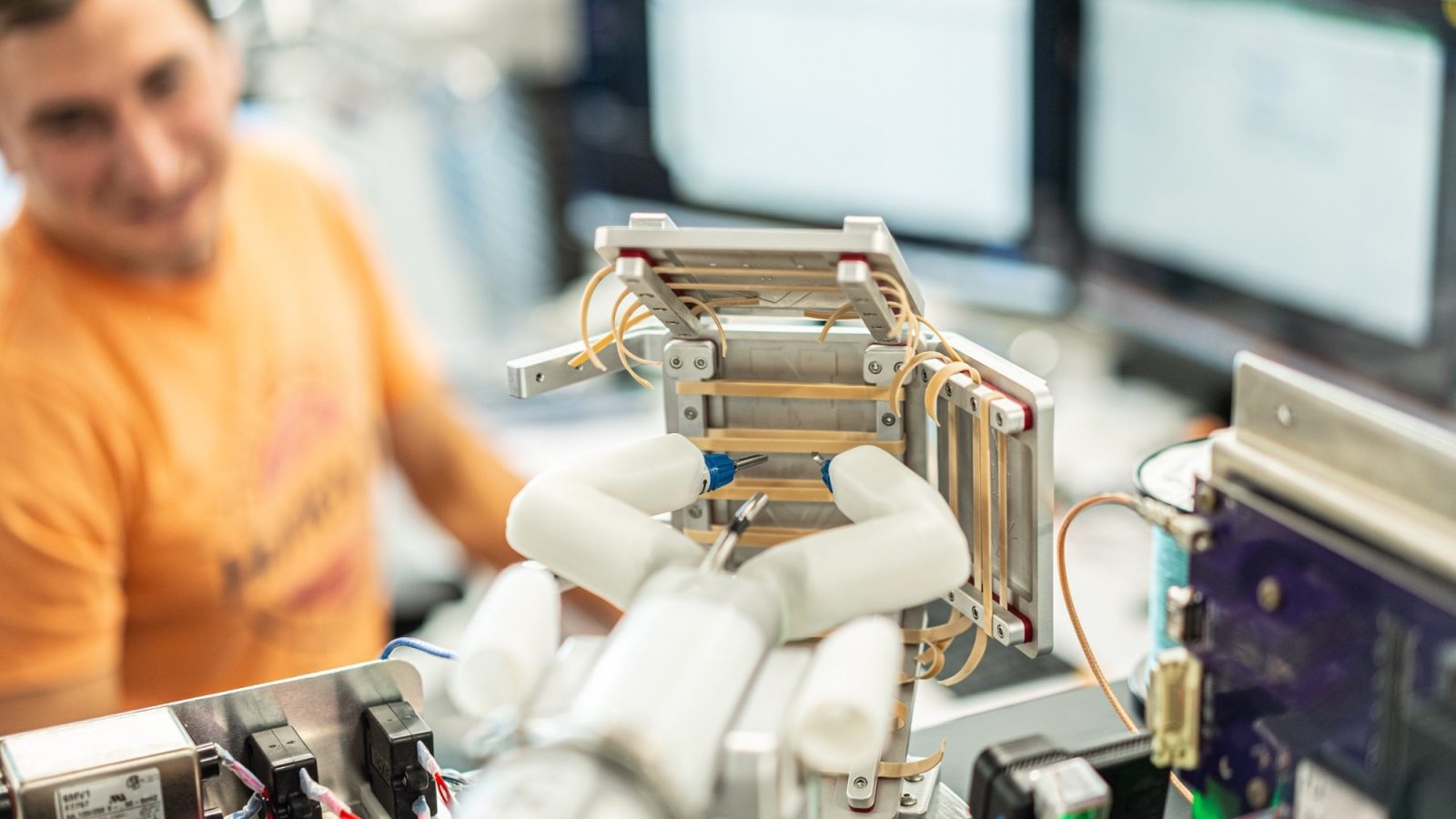
In an experiment conducted over the weekend, surgeons stationed on Earth achieved a significant milestone by remotely controlling a small robot to perform surgery aboard the International Space Station. This highly anticipated event, involving the cutting of rubber bands as part of a surgical simulation, marks the first surgery of its kind in orbit that plays a giant leap in the development of space surgery capabilities.
The robot, named spaceMIRA, is a collaborative innovation by Virtual Incision Corporation and the University of Nebraska. Launched to the ISS aboard a SpaceX rocket at the end of January, the device is compactly designed, fitting within a box approximately the size of a microwave oven.
The installation of spaceMIRA aboard the space station was undertaken by NASA astronaut Loral O’Hara, who has been living aboard the ISS since September 2023 as a member of the outpost’s seven-person Expedition 70 crew.
Conducted from Virtual Incision’s headquarters in Lincoln, Nebraska, the experiment spanned approximately two hours. Six surgeons took turns operating spaceMIRA, which is outfitted with a camera and two mechanical arms—one equipped with pincers for gripping and stretching, and the other with scissors for cutting. The operation focused on standard surgical techniques, applying them to simulated tissue composed of rubber bands.
Join our Discord Server: Join the community with forums and chatrooms about space!
A notable challenge encountered during the surgery was the communication delay—approximately 0.85 seconds—between the control center on Earth and the ISS. Despite this obstacle, the experiment was declared an overwhelming success by all participants, with minimal to no disruptions.
This achievement demonstrated the feasibility of conducting remote surgeries in the challenging environment of space but also aims to pave the way for the application of such technologies in remote and isolated regions on Earth.
The successful operation of spaceMIRA aboard the ISS represents a critical advancement in medical technology, those close to the project tout, with the potential to provide essential surgical care during long-duration space missions, such as those planned for Mars. Moreover, the implications of this technology may extend beyond the confines of space, offering a glimpse into a future where remote surgeries could revolutionize healthcare accessibility in isolated areas of our planet.
FTC: We use income earning auto affiliate links. More.



Comments